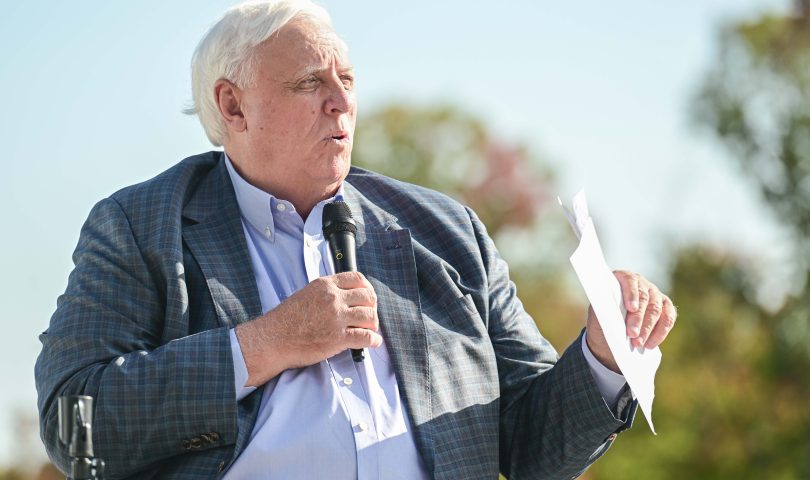Gov. Jim Justice said the U.S. Department of Education has approved a waiver for the state’s level of schools funding in relation to pandemic relief funds.
“As I said all along, I knew this was not going to be a problem,” Justice said in a news release.
“So, while we are all pleased the U.S. Department of Education accepted our waiver because we made it clear that education is a top priority in West Virginia, this announcement came as no surprise and was never a real issue.”
The possibility of a $465 million federal “clawback” jolted the final weeks of the regular legislative session as lawmakers were trying to put the final touches on the constitutionally required state budget.
The uncertainty contributed to decisions to pass a “skinny budget” that left some priorities like potential surplus spending undetermined. A May special session is envisioned to work out some of the remaining financial questions.
Justice said Friday evening the “clawback” gloom was an overrreaction.
“The potential of a ‘clawback’ should never have been used to scare anyone. That narrative only distracts from the positive progress we have made as a state. Let us put this issue to bed and continue making West Virginia the best place to live, work and raise a family,” Justice stated.
The problem was based not on any allegations of misspending — but instead over whether school systems fell short on an obligation to maintain financial support for education at levels in line with overall spending.
West Virginia, like other states, drew down millions of dollars in COVID relief from the federal government. One of those sources was the Elementary and Secondary School Emergency Relief fund.
That fund has a requirement known as maintenance of effort, a standard introduced April 21, 2021, requiring the state to keep the same proportional level of funding for schools as it had before the pandemic. That was measured in comparison to the state’s spending in other areas.
The Justice administration has said the federal spending ratio was a challenge for West Virginia because of its formulas in state law for education funding. For example, under West Virginia’s school funding system, the state funds a certain number of teachers and other educational positions for each school district based on the district’s student enrollment.
Waiver request documentation by the state described declining enrollment in the school system. But the document made a case that West Virginia had increased its per-pupil spending.
West Virginia’s submission calculated that K-12 per pupil spending was $8,010 in 2022 and $8,219 in 2023. That compared to an average of $7,570 spending per pupil in the three years prior to the pandemic.
And the document maintained that comparisons of education spending to overall spending got out of whack because of new, increased spending in the state healthcare system, prompted by the COVID-19 pandemic.
The U.S. Department of Education guidelines say decisions on waivers “will be rooted in the consideration of the impact on students.” The purpose of the federal funds, the guidelines indicate, “is to expand resources for K-12 and postsecondary schools and students, not to replace existing state commitments.”
During the most recent legislative session, officials attempted to demonstrate West Virginia’s commitment through passing a bill representing average 5% pay raises for educators. A fiscal note estimates that’s a $77.5 million outlay. Another bill represented a $150 million supplemental appropriation for School Building Authority projects all around the state.
“These supplemental appropriations are larger than the FY 2023 MOE gaps for both elementary and secondary and higher education,” Laura Jimenez, director of the Office of State and Grantee Relations for the U.S. Department of Education, stated in the approval letter. “Thank you for your ongoing commitment to education.”
State Superintendent Michele Blatt described gratification that the U.S. Department of Education recognized West Virginia’s support for public schools.
“Teacher salaries, early learning classroom support, foster care initiatives and post-secondary focus areas are among the ongoing efforts to ensure students have a robust educational foundation to build upon. Governor Justice is to be commended for his leadership during this process,” Blatt said in a news release distributed by the state education department.
Justice, in the Friday news release, said West Virginia has demonstrated its commitment to financial support for schools.
“We’ve made substantial improvements to our education system. These investments are exactly what the U.S. Department of Education was looking for during their review, and I’m genuinely thankful these funds are directly benefiting our schools, teachers, and students instead of going back to Washington, D.C.”





